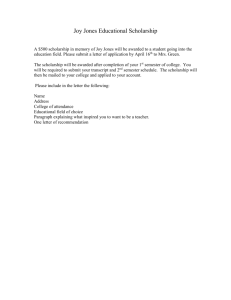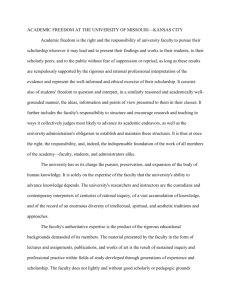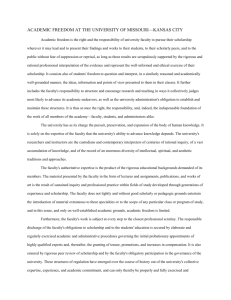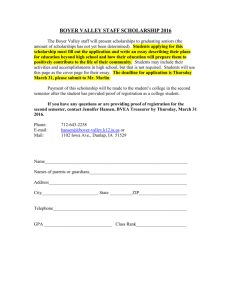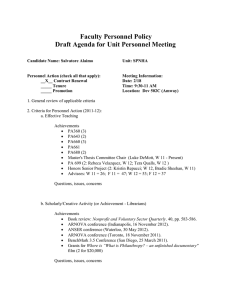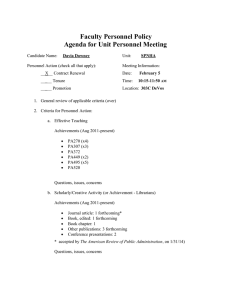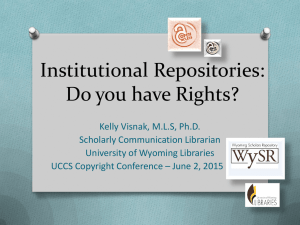Seminar in Educational Research
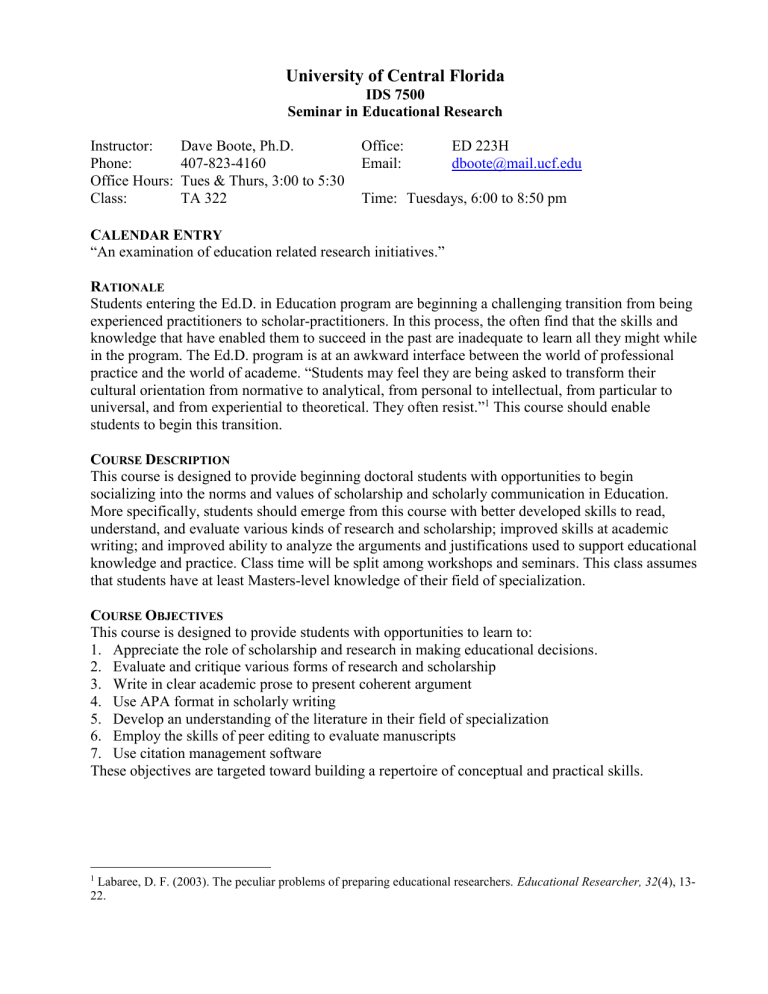
University of Central Florida
Instructor:
Phone:
IDS 7500
Seminar in Educational Research
Dave Boote, Ph.D.
407-823-4160
Office Hours: Tues & Thurs, 3:00 to 5:30
Class: TA 322
Office:
Email:
ED 223H dboote@mail.ucf.edu
Time: Tuesdays, 6:00 to 8:50 pm
C ALENDAR E NTRY
“An examination of education related research initiatives.”
R ATIONALE
Students entering the Ed.D. in Education program are beginning a challenging transition from being experienced practitioners to scholar-practitioners. In this process, the often find that the skills and knowledge that have enabled them to succeed in the past are inadequate to learn all they might while in the program. The Ed.D. program is at an awkward interface between the world of professional practice and the world of academe. “Students may feel they are being asked to transform their cultural orientation from normative to analytical, from personal to intellectual, from particular to universal, and from experiential to theoretical. They often resist.”
1
This course should enable students to begin this transition.
C OURSE D ESCRIPTION
This course is designed to provide beginning doctoral students with opportunities to begin socializing into the norms and values of scholarship and scholarly communication in Education.
More specifically, students should emerge from this course with better developed skills to read, understand, and evaluate various kinds of research and scholarship; improved skills at academic writing; and improved ability to analyze the arguments and justifications used to support educational knowledge and practice. Class time will be split among workshops and seminars. This class assumes that students have at least Masters-level knowledge of their field of specialization.
C OURSE O BJECTIVES
This course is designed to provide students with opportunities to learn to:
1.
Appreciate the role of scholarship and research in making educational decisions.
2.
Evaluate and critique various forms of research and scholarship
3.
Write in clear academic prose to present coherent argument
4.
Use APA format in scholarly writing
5.
Develop an understanding of the literature in their field of specialization
6.
Employ the skills of peer editing to evaluate manuscripts
7.
Use citation management software
These objectives are targeted toward building a repertoire of conceptual and practical skills.
1 Labaree, D. F. (2003). The peculiar problems of preparing educational researchers. Educational Researcher, 32 (4), 13-
22.
Activities
Students will be assessed through two main written assignments: (1) a comparative analysis of published literature reviews, and (2) an analysis and synthesis of a field of educational scholarship and research. Each assignment will be evaluated against course objectives, with the second assignment weighing more heavily than the first. In addition, to deepen their understanding of literature reviewing, students will also submit (3) a series of short analyses of at least five (5) genres of literature reviews.
While students are free to tailor these assignments to their scholarly and research interests, each assignment is intended to provide students with an opportunity to demonstrate their competence in the course objectives and that objective will take priority over the students’ interests.
Beginning of semester:
1.
Complete a concept map of current understanding of the state of the literature in your field
2.
Write a reflection on how research and scholarship inform your practice
Semester activities:
1.
Complete APA style modules
2.
Complete citation management software module
3.
Join a scholarly or professional organization
4.
Write twelve (12) article analysis and critiques
5.
Write twelve (12) structured abstracts
6.
Weekly peer-editing workshop in class
7.
Analyze a practice using the logic model of program theory
8.
Analyze a practice using the pattern language
9.
Analyze an argument using Toulim’s argumentation analysis
10.
Analyze a theory using the Theory chart
End of semester:
1.
Complete a concept map of current understanding of the state of the literature in your field
2.
Write a reflection on what you learned this semester and how you will improve you understanding of the literature in your field
Assessment & Evaluation
Each assignment will be assessed as A "above expectation" B "good performance" or C or F
"satisfactory" or “unsatisfactory.” "Plus" and "minus" grades will be assigned as appropriate.
Grade Description
A Above expectation: excellent analysis and synthesis of ideas; strong evidence of original thinking; coherent, well-structure and rigorously defended arguments; articulate and
B engaging writing.
Good performance: Accurate grasp of key concepts; adequate organization; reasonable
C clear writing and expression.
Satisfactory performance: Little evidence of understanding key concepts in readings;
F diverges from main point to superficial or peripheral points; unsubstantiated opinions or anecdotes; little or no analysis; poorly organized; problems with clear expression.
Unsatisfactory performance
Note: Clear, cogent, articulate writing is expected of all graduate students. Written work that does not meet these criteria will be returned un-graded for redrafting.
Required textbooks:
Shank, G., & Brown, G. (2007). Exploring educational research literacy . New York: Routledge.
American Psychological Association (2001). Publication manual of the American Psychological
Association (5 th Ed.). Washington, DC: American Psychological Association.
Additional required readings 2 :
Selected readings based on course theme, currently poverty and education
Readings, both those required of all students in the Core and those recommended by the specialization areas should include a variety of styles and research methods and scholarly approaches:
1.
Experimental study
2.
Correlational study
3.
Ethnography
4.
Case study
5.
History
6.
Philosophy/Theory
7.
Meta-analysis
8.
Descriptive literature review
9.
Essay
2 Note: these articles are available to you through the UCF library and I have provided the permanent link to the article.
If you are accessing these articles from off-campus you will first need to activate your EZProxy here: http://library.ucf.edu/Databases/
Tentative Schedule
Date Class focus Assignment due Readings
